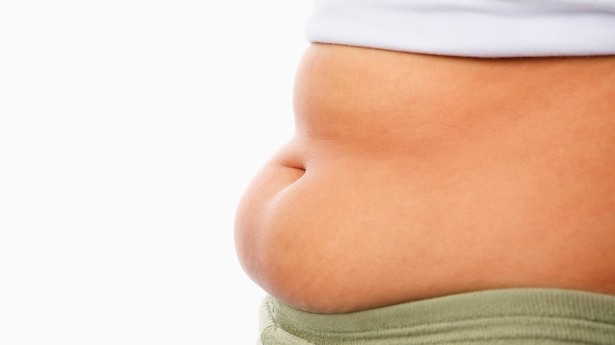|
It's the third week of January and 95% of people that have set a weight loss new year's resolution have already failed. The reason why they fail is that often resolutions are vague. They are almost impossible to achieve and relatively easy to fail. The consequence of this is guilt, a reduction in motivation, feelings of failure and an increased unwillingness to even try - a condition called Learned Helplessness. There are three tips I'd recommend to avoid repeating the curse of the New Year's resolution. 1. Set goals instead of resolutions. 2. Focus on body fat not weight. 3. Set mini-milestones and celebrate every victory. The video below gives a bit more information to give you a boost if you've 'failed' your resolutions.
1 Comment
With around 63% of adults in the UK measuring at either overweight or obese, it's no wonder that almost two thirds of us are on a diet for the majority of the time. Often this means people trapped in a cycle of taking up a specific diet – from Atkins to the 5:2 – before quickly losing motivation and piling on all the weight they lost. And then they do the same thing with the next diet. It's a frustrating cycle that not only negatively impacts the physical and mental health of the individual, but also can have a huge impact on society through medical costs and lowered working ability. Part of the problem with dieting to lose weight is a lack of understanding. Logic dictates that eating less calories than your body is using should result in weight loss but the multitude of other factors involved make it all very complicated. And, while there is a wealth of information about dieting available on the internet, quite often you need a degree in fitness and nutrition to understand it all. Not helpful when you're trying to work out whether it's better to have avocado toast or humus with carrot sticks. While every person is different, in the way that their body utilises the fuel it is given and their taste in food, this post will look at one of the body's natural processes – ketosis - and explain as simply as possible how this can help people lose weight. What is ketosis? Ketosis is a natural metabolic processes, meaning that it is something that the body does to function properly. The human body uses food as a fuel to keep it working and its first choice of fuel is glucose, which comes from carbohydrates. An average human can store around 1000-1600 calories of glucose, dependant on muscle mass, allowing for a good amount to be used across the day. If the glucose fuel runs out, however, the body has a second option in the form of ketone bodies which come from fat. Unlike glucose calories, which will only fuel the body for a short while without the stores being replenished by eating, an average human can store hundreds of thousands calories of fat and therefore keep fuelling the body for much longer. The fat stores will eventually be depleted if fasting continuously but they can sustain the body for a significant amount of time. The metabolic process of the body burning through fat cells rather than glucose is known as ketosis. How does it work? When the body switches from burning through glucose to using up the fat stores, this is known as ketosis. It can occur in people with diabetes if they are lacking insulin or if the body is not using insulin correctly, but it can also be a dietary choice for those wishing to lose weight. So how does it work? The body's natural choice of fuel is, as mentioned above, glucose. This comes from sugars, found in fruits and some dairy products, and starchy foods, like potatoes and pasta. The body can store as much as 1600 calories of glucose, in the form of glycogen, in the liver and muscles. If these stores run out, the body will go to its secondary fuel source: fat cells. The body can break down fat cells to provide itself with more energy. By limiting the carbohydrates consumed, an individual can force the body into ketosis so that it begins burning through the fat stores instead of simply reaching for glucose. A diet with limited sugars and carbohydrates can encourage the body to enter ketosis, meaning that it is using the fat the primary fuel source. Once it has burned through the easily accessible fat from your diet it will then move on to using the fat stores around the body. The depletion of these fat stores through ketosis should then help with weight loss. A ketogenic diet As the body prioritises the use of glucose, a ketogenic diet (also known as a keto diet, or low-carbohydrate diet) lowers the easy availability of glucose through food choices. Most ketogenic diets place strong restrictions on carbohydrates, with many allocating just 5% of calories to the consumption of carbohydrates and sugars. Proteins, which can also provide the body with glucose, are similarly limited at around 20% of the total calories ingested. The remaining 75% of all caloric consumption in the ketogenic diet comes from fats. For someone to undertake the ketogenic diet in its strictest form, they will most likely have to give their lifestyle an overhaul to take what they are now no longer supposed to eat and what they should be eating more of into account. Grains (like pasta and rice), sugars (including syrup and honey), fruits, and tubers (like potatoes) are all strictly restricted on a ketogenic diet to minimise the availability of glucose and maximise the effects of ketosis on weight loss. Leafy greens and vegetables like broccoli and cauliflower, alongside various meats and proteins, are important parts of the diet's balance but ultimately make up only a small proportion of the calories to be consumed. High fat items like hard cheese, nuts, and avocados make up the bulk of daily meals. Though this diet overhaul can seem overwhelming due to its strict departure from most people's typical meal plan, the internet has a huge amount of recipes and advice about how to commit to a ketogenic diet to maximise weight loss and fitness. Risks As with any diet or method of weight loss, the use of a ketogenic diet may not work for all people and can carry some significant risks with it. A key part of ketosis is depriving the body of its primary fuel source and effectively forcing it into a form of starvation survival. It is natural that the body would produce side effects when under this kind of duress to show that it wants something to change. The limitations on what foods may be consumed when using ketosis for weight loss can result in nutritional deficiencies, hypoglycaemia, gastrointestinal issues, and lower cognitive abilities. Dehydration is not uncommon. Taken to the extreme, a ketogenic diet can also disrupt the menstrual cycle, cause heart arrhythmia and osteoporosis, lower the immune system and make the individual more susceptible to infection, and has even lead to death in some cases. It is not a diet suited to those with kidney disease as the process of ketosis can worsen the condition. In addition to these potential adverse reactions and side effects, using ketosis as a long-term method for weight loss or weight maintenance may have a negative impact on the individual's overall future health. This is particularly true when it comes to the muscles. Many critics of the ketogenic diet model argue that it can cause some muscle loss and fatigue as the body enters into a kind of starvation mode. This may then make weight loss harder in the long run. While these adverse reactions may not be common, it is still advised that you approach a medical professional before attempting this form of diet to discuss whether it is the right choice for your overall health. Weight loss benefits When the body is deprived of glucose as its primary fuel source, the ketosis process forces it to start burning through fat instead. Naturally, this can result in weight loss if done correctly. There are numerous online sources, from internet posts to Youtube videos, which show results at a personal level of people who have undertaken a ketogenic diet for weight loss purposes and many of them indicate that good results can be achieved fairly quickly. As with many diets, however, the best results come with a dedication to an overall lifestyle change and generally include a reduction of calories and an increase in exercise. A 2007 study found that, in comparative study with three other kinds of diet plan across twelve months, those on a high fat, low carbohydrate, “Atkins type” diet had the most dramatic results. Participants on the high fat diet the most noticeable reductions in weight, waist-to-hip ratio, and Body Mass Index of all the four diet groups. Their weight loss was also shown to happen faster and the group's average BMI decreased by 2.9%, which was a significantly better result than any of the other diet plans. One of the big strengths of the use of ketosis with weight loss is that the diet encourages the individual to eat a significant amount of healthy fats in their meals. These fats can fill up the stomach for longer, decreasing snacking in between meal times. It also restricts some of the common favourite foods, like pizza and crisps, meaning that the overall diet may improve to account for the requirements of the ketosis process. Together this can cause there to be a reduced daily calorie intake and therefore can encourage greater weight loss results than there may have been on an alternative plan. Other benefits
Ketosis, when utilised as part of a ketogenic diet plan, has been shown to have a number of other benefits associated with it outside of the immediate weight loss uses. It has historically been utilised in the treatment of epilepsy since the 1920's. While 70% of individuals with epilepsy can be treated and seizures controlled with anti-epileptic medications, a ketogenic diet may be recommended if two or more medicinal options have been attempted but unsuccessful. It is thought that the chemicals associated with ketosis can help reduce seizures within some people with epilepsy. There are ongoing discussions within the scientific community as to whether this diet could also be of benefit to patients with other brain disorders, such as Parkison's Disease, Multiple Sclerosis, and sleep disorders, but there are no human studies to confirm this as of yet. There has also been evidence that a ketogenic diet can be of benefit to individual's with type 2 diabetes, as it has been shown to have a short-term improvement on blood sugar control. Other benefits related to the use of ketosis as an aid for weight loss are largely related to the overall health benefits of weight loss in general. It can result in better HDL cholesterol levels and lower the risk of cardiovascular disease. General diet and fitness may improve and this can result in clearer skin, stronger nails, and more healthy hair. Ketosis as a way to help with weight loss is not intended to be a long term solution to dietary struggles but it can be a positive starting point for an overall health improvement journey. The firm rules and unavailability of certain temptations can make it easier to follow than some more complex diet plans, with the added benefit of including foods that can make the stomach feel fuller for longer to reduce the risk of excessive snacking. Alongside advice from a medical professional and a good exercise plan, a ketogenic diet can show rapid results that can help boost motivation and help translate into a more long-lasting healthy lifestyle. Trying to lose weight can be difficult, particularly as we start moving into the winter months, but ketosis can be an effective a way to use the body's natural processes to help you on your journey. Do your research, making use of the ready availability of information in libraries and on the internet, and consult with your GP to find out if ketosis could help you lose weight. I spend a lot of time with people helping them to lose weight and it's easy to get caught in the trap of the law of familiarity and stop following my own advice. It's important to me that I practice what I preach and walk the talk so I'm doing a 100 day weight loss challenge. Follow my journey in this dedicated blog here: http://www.hypnoslimming.com/100-day-challenge
This blog looks at the 7 reasons why hypnosis is effective for weight loss. Click here to read the full article.
The 5 main types of emotional eating and how you can deal with them and get control back. Click here to read the full post.
An emotive blog responding to articles in the news that weight loss surgery was the solution to the issue of obesity. Click here to read the full comparison of hypnosis vs surgery.
Generally when people want to lose weight they want to lose it from their waist or their belly. This blog post reveals how to lose belly fat and deals with some of the myths around belly fat.
Our first and most popular blog post on how to lose weight fast including how to lose 10kg (1.5 Stone) in 7 days. Click here to see the full article.
|
AuthorAdam Michael Cox: Leading Expert & Authoritative Voice on Hypnosis for Weight Loss Archives
January 2018
Categories |







 RSS Feed
RSS Feed